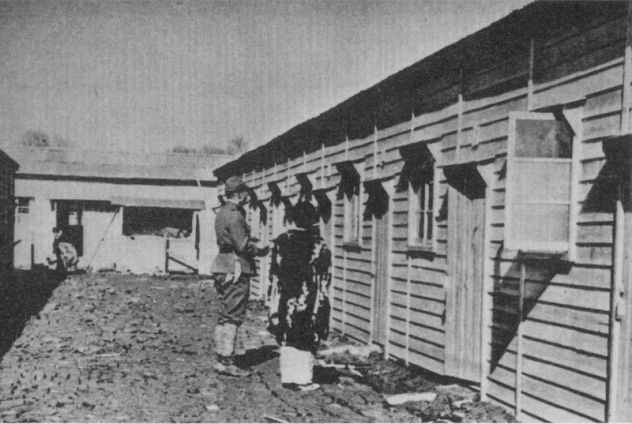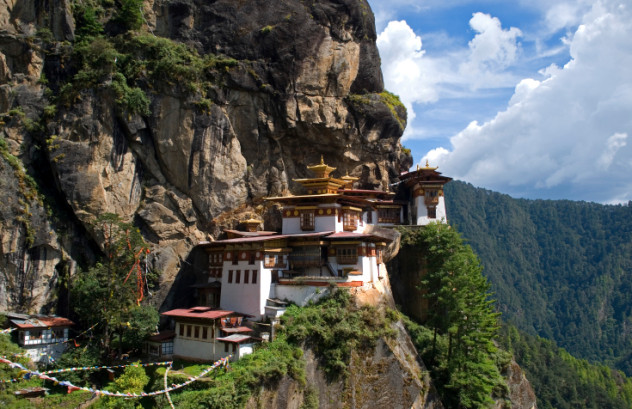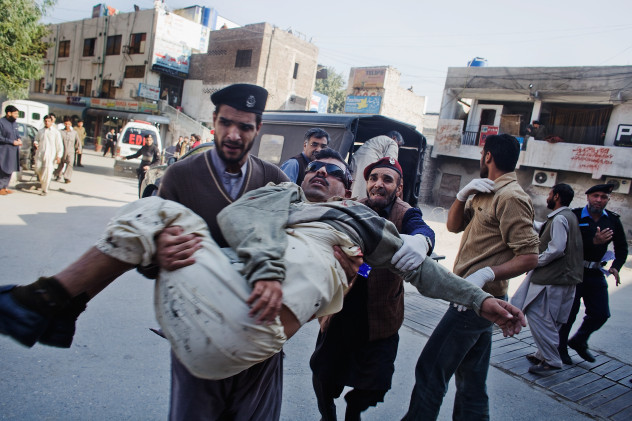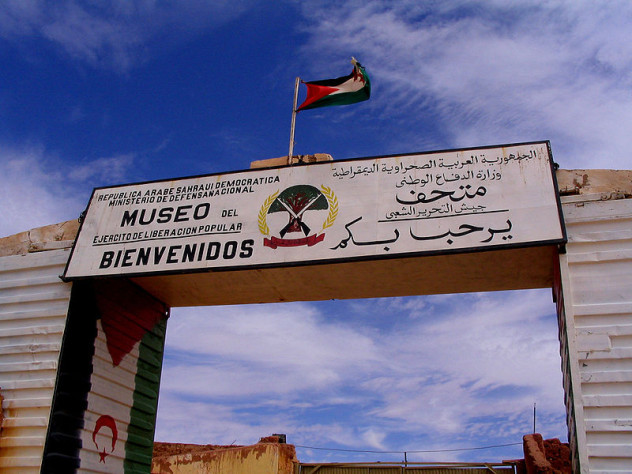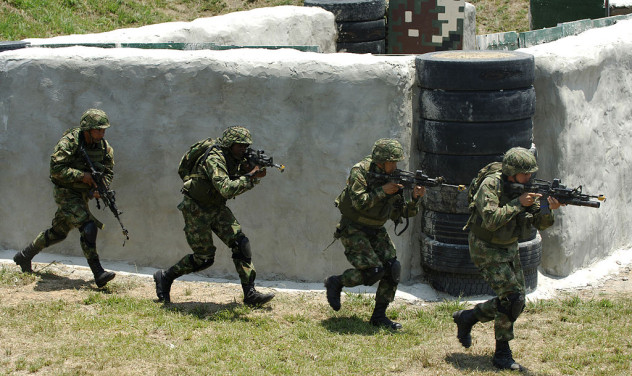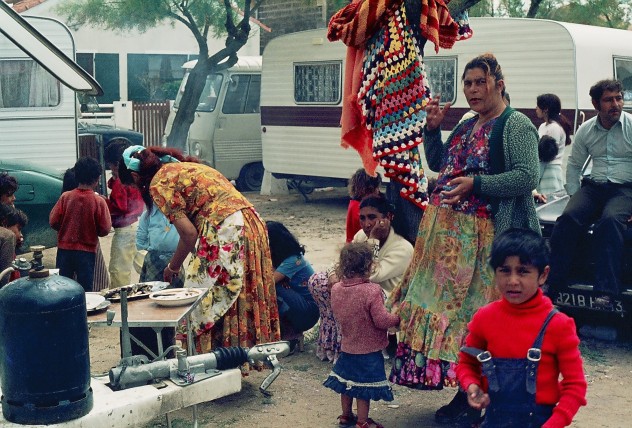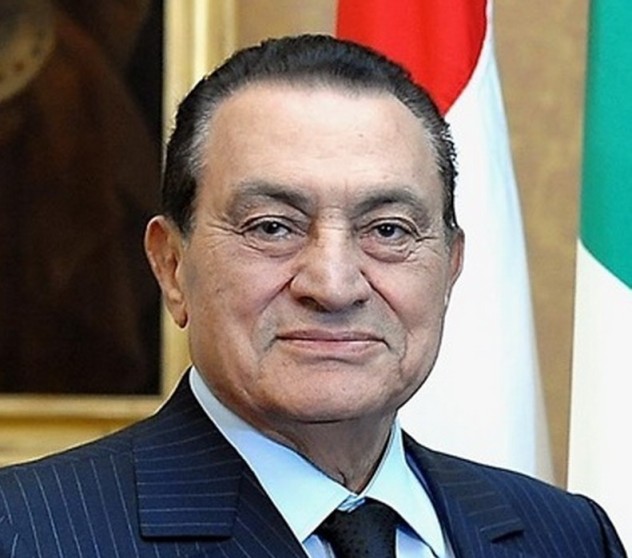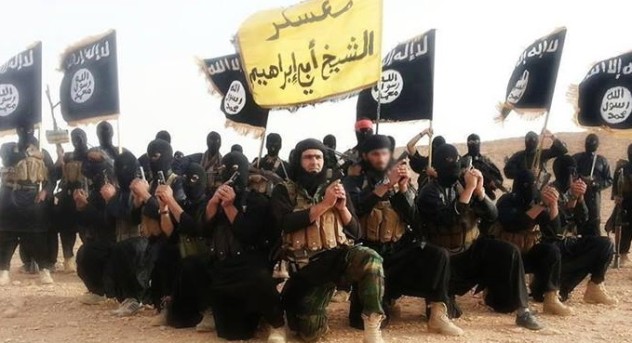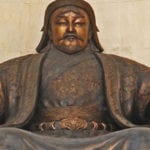Well, nearly always. While most of us today are aware of Putin’s excessive human rights abuses or the Armenian Genocide that Turkey insists never happened, there are still plenty of crimes getting swept under the rug. For reasons of realpolitik, propaganda, or simply to keep the money flowing, some immensely powerful people would prefer you didn’t know about the following.
10Imperial Japan’s Kidnapping And Sex Slavery
In 1932, Japan opened its first “comfort station.” A military-only brothel, it was intended to give Imperial troops a form of release. It differed from regular brothels in three crucial respects: All of the girls were foreign, most had barely hit puberty, and all of them had been kidnapped. As World War II erupted across Asia, these stations became a vital tool of the Japanese government. Young girls were abducted from China, Korea, and the Philippines and put to work in appalling conditions satisfying the sexual whims of fully grown men. The survival rate was abysmally low. To this day, Japanese officials and scholars routinely deny anything happened. In 2014, Japan’s Prime Minister Shinzo Abe publicly declared the trafficked girls were willing prostitutes and promised to reconsider Japan’s official 1993 apology. A month earlier, Japanese state TV accused America of fabricating Japanese crimes in World War II to cover up its own atrocities. These are far from isolated incidents. In all walks of Japanese life, there has been a concerted effort to paint the Imperial Army as blameless for its horrifying wartime rape record. Although students in China learn all about Japanese atrocities, Japan’s own syllabus effectively paints out the suffering of the kidnapped girls. Chillingly, far-right Japanese groups are now trying to erase this story from US textbooks, too. The Abe government has been directly pressuring New York publishers to drop all references to comfort stations from their history books.
9Bhutan’s Ethnic Cleansing Policy
A tiny nation bordering India and China, Bhutan is today most famous for ditching GDP in favor of “gross national happiness.” If you’ve heard of it, it’s likely in the context of a fawning article praising the government’s commitment to contentment and encouraging the rest of us to emulate the Bhutanese way. What rarely gets mentioned is that this way of life involves a whole lot of ethnic cleansing. In the late 1980s, Bhutan enacted a “one nation, one people” policy linking Bhutanese citizenship to racial purity. As a result, one-sixth of the population—mostly the Lhotsampa minority descended from the Nepalese—suddenly found themselves stateless. Forced from their jobs and homes, 100,000 people were driven over the border into refugee camps and left to rot. Today, Bhutan denies any part in expelling the Lhotsampa. Instead, the country relies on a constant barrage of propaganda to keep its image squeaky-clean. Many buy into this tempting image of Bhutan as the last Shangri-La, meaning the plight of the Lhotsampa gets buried. This is remarkable considering the US alone has been forced to take in over 75,000 refugees. By way of comparison, the number of Syrian refugees entering the US is currently in the low thousands.
8Pakistan’s Genocidal War
In 1971, East Pakistan (now Bangladesh) decided to decisively split with its western neighbor and forge its own path. The response from Islamabad was apocalyptic. Pakistan’s generals unleashed hell on their Bangladeshi cousins, culminating in a genocide in which as many as three million may have died. But today these crimes are virtually unknown thanks to Pakistan’s sustained campaign of denial. Ever since the war’s end, Pakistan has worked to reduce the official death toll, placing it at a mere 26,000. School textbooks leave out any mention of genocide and place the blame for the war firmly on Hindu extremists trying to destabilize the Muslim nation. When a specially commissioned 1974 report concluded the army had deliberately targeted intellectuals, businessmen, and officials for mass extermination, Pakistan had it buried. Today, many still believe the soldiers were honorable heroes who wouldn’t attack peaceful civilians. Some Western countries may have had a hand in protecting the architects of the genocide. Since at least 1995, the UK government was aware that London-based Chowdhury Mueen-Uddin was accused of crimes in the 1971 war. In 2013, a Bangladesh court convicted and sentenced him to death in absentia. At time of writing, the UK government has yet to extradite or arrest Mueen-Uddin; a move at least one mainstream London paper has compared to Argentina’s harboring of Nazi war criminals.
7Angola’s Shocking Blood Diamond Trade
In 2012, Angolan journalist Rafael Marques de Morais quietly released a book detailing his country’s involvement with the blood diamond trade. With meticulous research, he revealed that Angola’s security forces had murdered over 100 civilians in the diamond-rich fields of Cuagno. Rather than respond to his claims, the Angolan government is now trying to silence Morais with defamation lawsuits that could condemn him to nine years in jail. In a country where the average citizen lives on less than two dollars a day, the diamond trade has made a tiny handful very rich. Those at the top have been more than willing to kill to protect their fortunes. Since this includes most of the ruling family and generals, the courts have done all they can to keep critics silent. At its most surreal, the government has even been accused of buying up all 500 initial copies of Morais’s book to stop anyone from reading its contents. This move amusingly backfired when they accidentally made it a Portuguese bestseller. Sadly, their efforts seem to be working. Despite the outrage at Zimbabwe’s diamond mining practices, Angola usually escapes criticism thanks to its strategic and business value. Meanwhile, men like Morais face unimaginable fines and hefty prison sentences simply for trying to speak the truth.
6Morocco’s Western Sahara Shame
Sitting at the very bottom of Morocco, the region of Western Sahara goes almost unnoticed by most tourists. Annexed from the indigenous Sahrawi people when Rabat sent in 300,000 men in 1976, the territory is today best-known for its tomatoes. What’s less well-known is its recent history of genocide. Between 1975 and 1991, Moroccan security forces abducted and killed hundreds of Sahrawi, confiscated land, and forced many of the survivors to flee into refugee camps in neighboring Algeria. They then bombed the camps for good measure, dropping napalm onto unarmed civilians. Today, Rabat is trying to erase all traces of these crimes through a sustained propaganda war. According to pro-Sahrawi groups, Morocco is trying to influence the Western media by painting them as terrorists. At the same time, archaeologists have noted that Rabat is using excavations in the area to erroneously stake a historical claim over the region. Morocco’s pro-Western stance in both the Cold War and the War on Terror has made it politically inconvenient to call the government out on its abuses. Although the UN has tried, France has repeatedly wielded its veto power to stop sanctions from going ahead. As a result, the suffering of the Sahrawi remains invisible.
5Colombia’s Army Massacres
We’ve previously told you about Colombia’s decades-long civil war which was one of the messiest in history. Violent left-wing rebels and psychopathic right-wing paramilitaries are facing off with ordinary Colombians caught in the middle. But, while these atrocities are frequently reported, there’s one murderous actor in this play that’s largely ignored: the Colombian government. In the last few decades, the Colombian army has conducted a spree of extrajudicial killings that have nearly always targeted civilians. By 2013, at least 4,000 victims had been named, with new mass graves turning up all the time. Yet, the Colombian government not only denies these crimes, it refuses to accept responsibility even when it’s been found guilty in an international court of law. The worst example is the Santo Domingo massacre. In 1998, left-wing rebels hid among the civilians in the small village of Tame. Rather than investigate properly, the Colombian Air Force bombed the village, killing 17, including six children. The government then tried to pin the killings on the rebels, continuing to protest their innocence even after a guilty verdict from both the Inter-American Court of Human Rights and their own courts in Bogota.
4Germany And The Roma
Unlike Japan, Germany has always been upfront about accepting its role in World War II’s atrocities. Every year, thousands gather at Holocaust memorials, and denying a genocide took place is considered a serious crime. But for a long time, not all victims were represented equally. It wasn’t until 1982 that the Roma were recognized as victims at all. Known as the Porajmos (“the Devouring”), the Roma Holocaust resulted in a quarter of all European gypsies being liquidated by the Nazis. They were the only ethnic group of whom there were no survivors at Auschwitz, and they proportionally suffered more losses than any other Nazi victims bar the Jews. Yet during the Nuremberg trials, and for decades afterward, they were neither acknowledged as victims nor paid. Like the pink triangle wearers who remained criminals under German law until the gay rights movement, Roma victims found themselves marginalized for a very long time. Incredibly, the Federal Republic of Germany even upheld actions taken against Roma before 1943 as lawful. This definition included forced deportations and sterilization. By the time West Germany finally recognized the Porajmos, nearly every victim eligible for compensation had already died. The Porajmos is now an official part of German history and taught in schools. In 2011, the German state finally invited a Roma delegation to its Holocaust Memorial Day.
3Egypt’s Murderous Dictatorship
In early 2011, Egypt’s dictator of 29 years, Hosni Mubarak, was finally overthrown in a revolution broadcast around the world. No matter that Mubarak had been one of our staunchest allies; this would be the start of a new sort of politics in Egypt. Only fast-forward four years and pretty much nothing has changed at all. Instead of one murderous dictator, plenty of global governments are now supporting a completely different one. Under the rule of General el-Sisi, over 1,000 peaceful protestors have been killed in what Human Rights Watch claims “probably amounts to crimes against humanity.” That’s about 200 fewer than died in Mubarak’s blood-soaked endgame, and it’s barely scratching the surface. Sisi has ordered mass executions on spurious grounds, and his security forces have persecuted the political opposition including both the Muslim Brotherhood and secular activists. Those who should be condemning Sisi’s crimes instead act as his cheerleaders. Politicians voice their support, and news channels compare him to Winston Churchill. Thanks to Sisi’s stance against the Muslim Brotherhood and ISIS, many governments now praise his rule. Meanwhile, the fate of innocent protestors goes underreported and ignored.
2Saudi Arabia’s Involvement With ISIS
One of the West’s strongest allies in the Middle East, Saudi Arabia is also the country least open to Western values. Aside from their depressing position on women’s rights, the Saudi royal family advocates public beheadings for adultery, imprisonment for voicing opinions, and the funding of Islamic terrorists. In 1973, they even deliberately engineered an economic crash in the West as punishment for America supporting Israel. Yet, none of this even comes close to their role in the creation of ISIS. Since 2012, there has been strong evidence that Saudi Arabia, Qatar, and Kuwait have all allowed millions of dollars to flow to ISIS extremists. Starting last year, Saudi Arabia took the lead in financing extremist Syrian rebel groups. These very same groups are currently turning a large swath of Iraq and Syria into a moral wasteland. The Independent has also called Saudi Arabia responsible for ISIS’s interpretation of Islam and suggested the group’s rise was a deliberate attempt by Saudi security forces to destabilize Syria. In the months since ISIS made headlines, the Saudi royal family has distanced itself from the group and declared it “public enemy number one.” Yet they continue to finance preachers to spread the influence of Wahhabism, which is their personal version of Islam so intolerant it’s been called the “fountainhead of Islamist terrorism.” At the same time, the country denies any responsibility, and Western governments afraid of losing a valuable ally play along.
1The PR Firms Covering Up Shameful Crimes
So far, all of the crimes we’ve looked at are generally being covered up by governments eager to protect their own reputations. Not so in Bahrain, Equatorial Guinea, Kazakhstan, and many other places. Instead, their governments have hired Western PR firms to do their dirty work for them. In 2011, Bahraini activist Maryam al-Khawaja made a speech about her government’s human rights abuses to the Oslo Freedom Forum. Immediately afterward, Twitter and other social media sites were flooded with messages proclaiming Maryam a “terrorist” and questioning her version of events. Rather than from within the Bahraini government, these online attacks were later discovered to have originated with Qorvis Communications, a Washington-based company. As Bahrain was busy murdering unarmed protestors, Qorvis’s “communications experts” were smearing anyone who dared speak out. Shocking as this is, it’s far from a one-off. PR firm Burson-Marsteller previously helped the Argentinian dictatorship cover up its murder of 30,000 civilians in the 1970s, and it worked with Indonesia as it was committing genocide in East Timor. American agency Hill & Knowlton accepted $513,000 to blunt the impact of damning human rights reports in Uganda. Other firms have worked with China, Equatorial Guinea, and even former Romanian dictator Nicolae Ceausescu to make their countries media-friendly. In doing so, they’ve helped stifle the suffering of millions and millions of innocent people.
